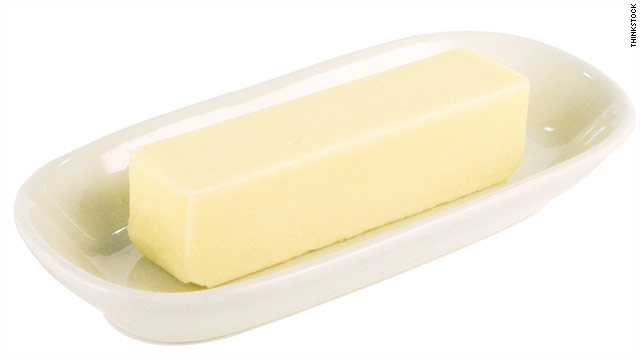A stick of butter purchased at a Dallas grocery story contained high levels of a flame retardant used in electronics, according to environmental scientists at the University of Texas School of Public Health.
The butter was contaminated with a chemical called polybrominated diphenyl ether, or PBDE.
"To the best of our knowledge, this is the first report of U.S. butter contaminated with PBDEs," said lead research Arnold Schecter, whose study was published Tuesday in the journal Environmental Health Perspectives.
The butter was purchased last year as part of a small research project to test for contaminates. The butter stick's wrapper contained even higher amounts of PBDEs. The source of the contamination remains a mystery.
"Flame retardants were not made to be eaten. They're made to slow down the smoke in fires. They're not a food component. They don't belong there," said Schecter. "Either the paper was contaminated before it reached the butter factory, or somehow it managed to get contaminated at the factory itself."
95 percent of Americans have flame retardant chemicals in their body, according to Sonya Lunder, a senior analyst with the Environmental Working Group. Lunder, who was not affiliated with the study, found the researcher's revelation baffling.
"There is a bulk of fire retardants out there in our environment, and that is generally yucky," she said. "These are much higher than you would expect compared to what you find in fish and other products."
The health effects of PBDEs on humans, especially developing children, are not fully known. In animal studies, PBDEs are associated with liver cancer and neurobehavioral alterations.
By Lunder's calculation, a 40-pound child would need to eat only 3 percent of a stick of contaminated butter to exceed the Environmental Protection Agency's daily safe exposure level for PBDE-209, the main component in PBDE.
According to Schecter, the contaminated butter was produced by a large, well-known Midwestern company. The study authors declined to identify the company, citing the small scope of their investigation.
"It can happen, and it did happen, but we don't know how frequent or infrequent it is," Schecter said. "We did not want to point the finger at any one company."
In a statement the National Milk Producers Federation said, "This would appear to be an isolated incident not representative of the product category, but based on the facts presented, further investigation is warranted.

No comments:
Post a Comment
Note: Only a member of this blog may post a comment.